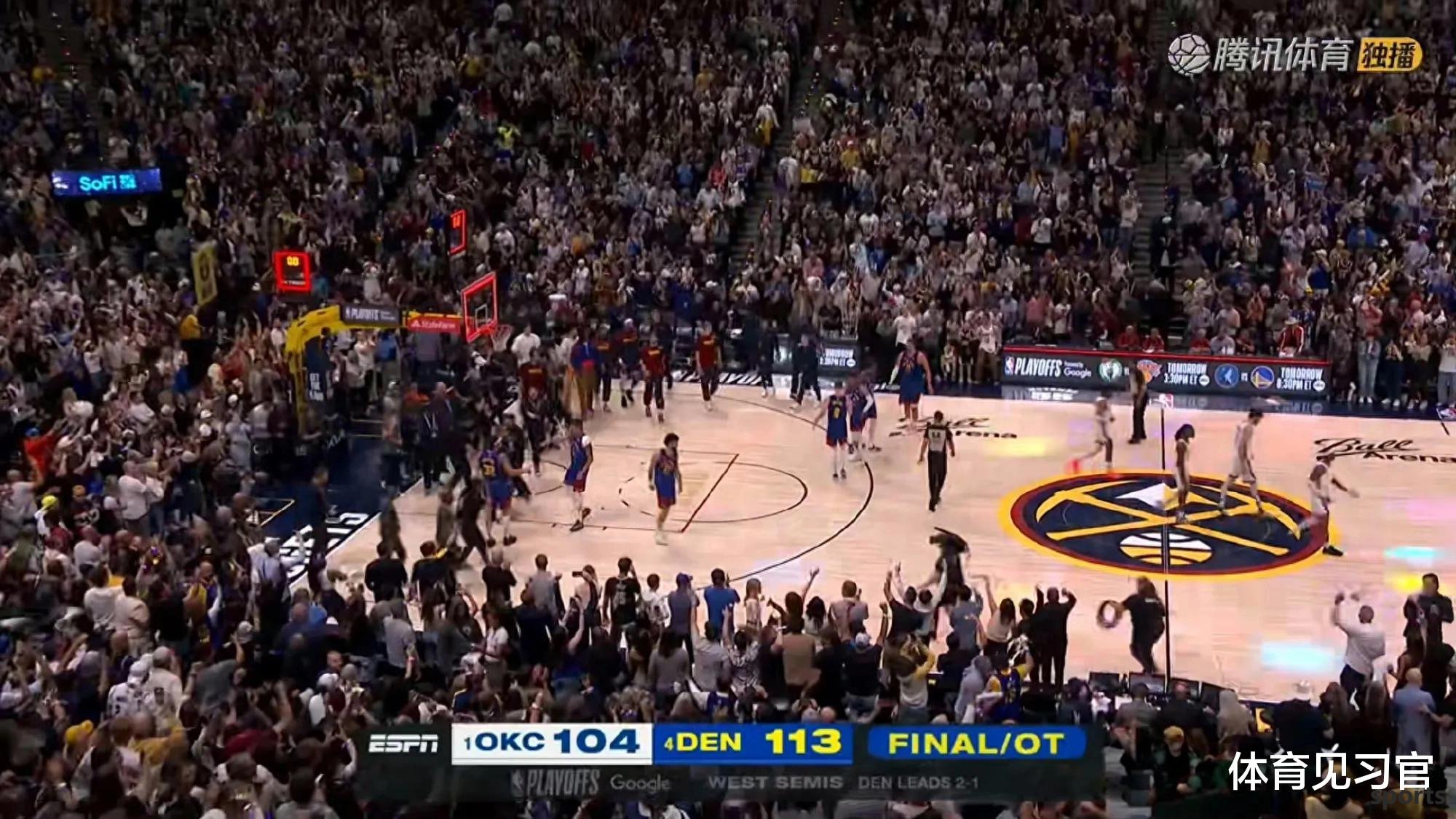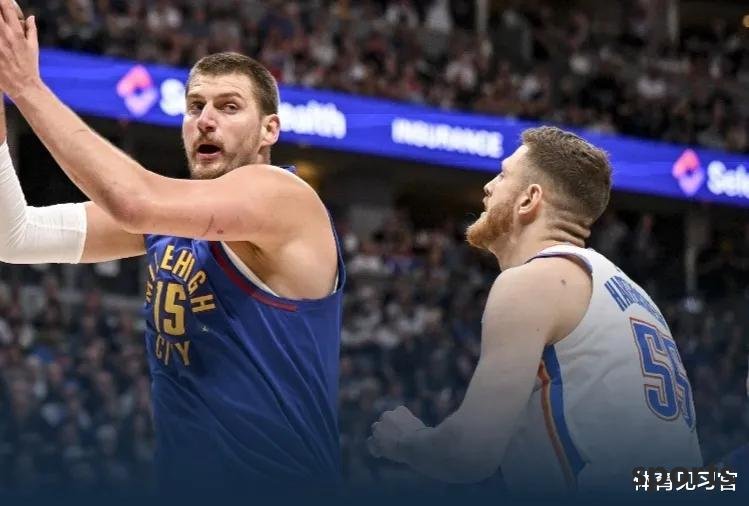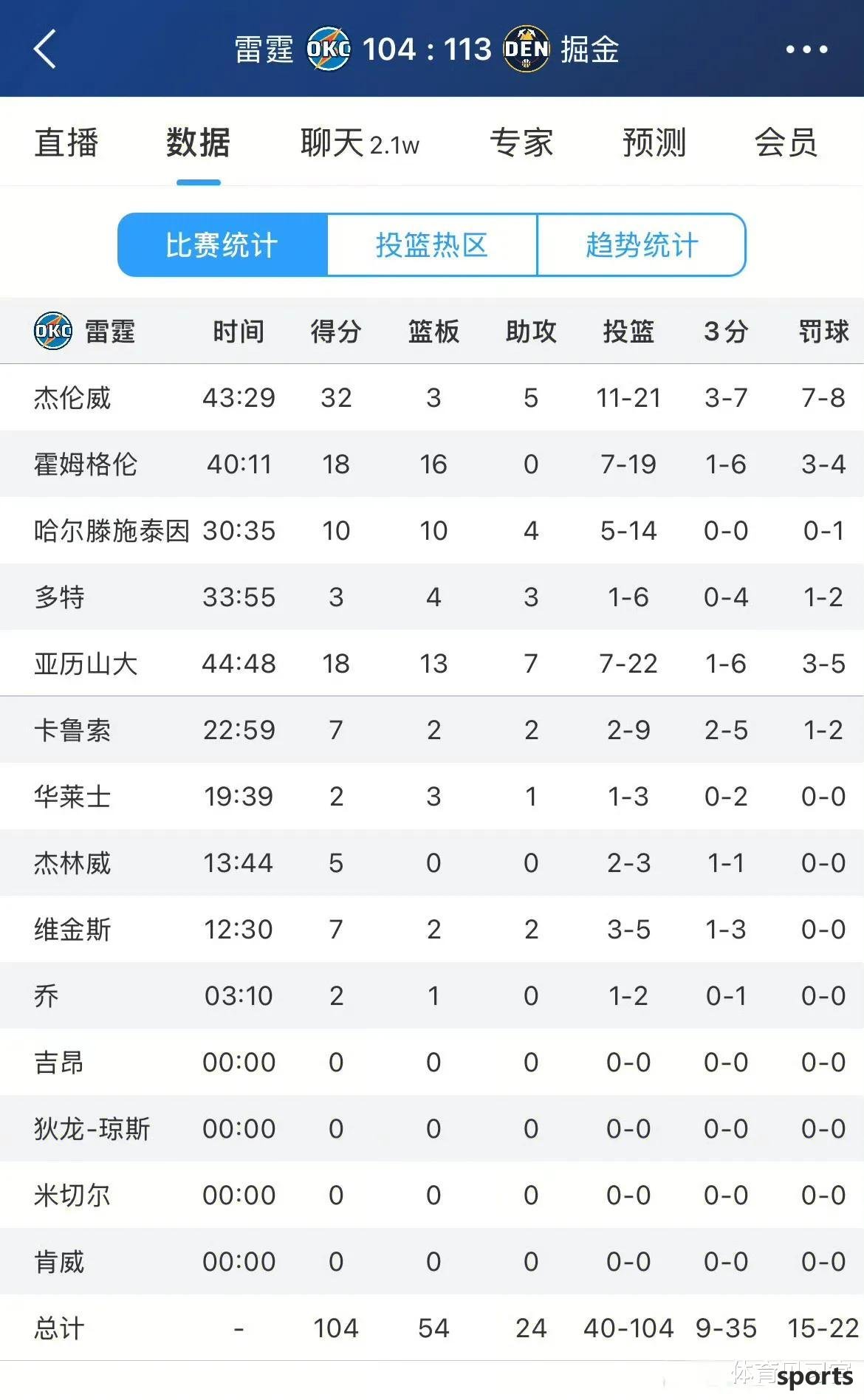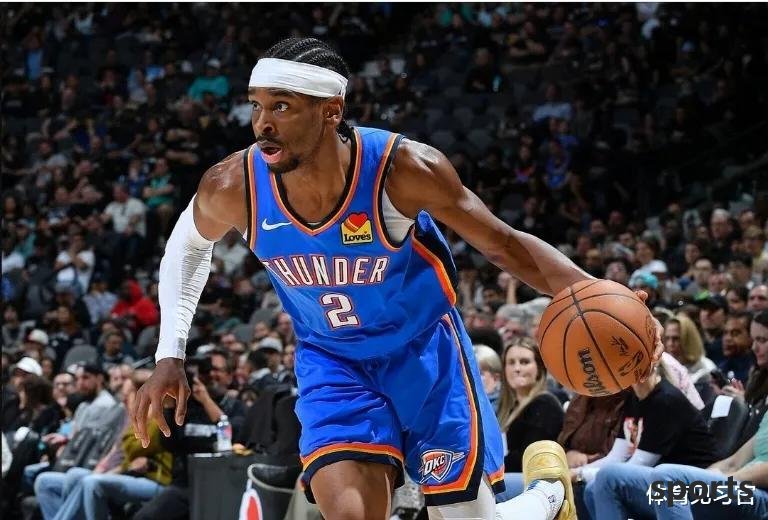Losing overtime, where is the Thunder losing in this game? The four major defeats were exposed, and the biggest "sinner" was found
1:16am, 15 May 2025Basketball
On May 10, 2025, this suspense and passionate night, the Denver Nuggets and Oklahoma City Thunder competed fiercely in the NBA Playoff Western Conference Semi-Finals G3. In the end, the Thunder lost to the Nuggets in overtime 104-113, falling behind 1-2 in total score, and the situation in the series was in jeopardy. Behind this game, there are many factors worth discussing in depth.

Failure 1: The sluggish performance of the Thunder core players at critical moments is undoubtedly one of the important reasons for losing. Alexander made only 7 of 22 shots in the game, shooting as low as 31.8%, and 1 of 6 three-pointers. In the final quarter of the game, he made many shots and missed the excellent opportunity to widen the score gap. And in the critical round, facing the Nuggets' double-team defense, he was unable to successfully break through, nor could he reasonably distribute the ball to his teammates, causing the team's offense to stagnate. Another core, Homegren, also performed poorly, making 7 of 19 shots in the game, shooting 36.8%. At the critical moment, he was at a disadvantage in the confrontation with Gordon. He made continuous blacksmiths on the offensive end, but was unable to effectively protect the rebounds on the defensive end. The plus or negative value of -8 in the whole game became a loophole in the team's offense and defense.
Failed 2: In overtime, the Thunder's offensive and defensive system completely collapsed. In the entire overtime, the Thunder scored only 2 points, but the Nuggets started with a 7-0 attack wave, instantly setting the victory. The Thunder missed consecutive shots in the final stage, and Alexander's three-pointer hit even frustrated the team's morale. On the defensive end, they had no choice but to have Murray and Gordon's breakthrough, allowing their opponents to tear open the defense line and score easily, completely losing the initiative in the game.

Failure 3: In addition to the core players, the Thunder's substitute also performed poorly. Caruso made 2 of 9 shots in the game, and Dort made 1 of 6 shots. Not only did the two unable to provide stable firepower support on the offensive end, they also frequently fouled on the defensive end, giving the Nuggets a large number of free throw opportunities. When the main players' physical strength declined and the players needed to rotate to stand up, they failed to assume their due responsibilities, which greatly reduced the overall strength of the Thunder.

However, among many underperforming players, Chet Homgren is the biggest sinner to the Thunder's loss. On the offensive end, he made 7 of 19 shots in the game and 1 of 6 three-pointers, with extremely low offensive efficiency. He was blocked or intercepted by Gordon many times in the key round, and his inside confrontation was obvious, becoming the target of the Nuggets. On the defensive end, he could not limit Gordon's score, allowing Gordon to score 22 points and 8 rebounds in the game. At the critical moment, his offensive mistakes were even more unacceptable. He chose to shoot unreasonably many times in the last quarter and overtime, forcibly breaking through and being blocked, wasting the team's valuable offensive opportunities.

Fault 4: The Thunder's coaching tactics are also controversial. The defensive strategy was not adjusted in time in overtime, and there was no effective restriction on Murray's breakthrough, which made the Nuggets play easily on the offensive end. In terms of ball rights distribution in the last quarter, he was too biased towards Alexander, which led to Jaylen Williams (32 points in the game) being isolated in the final and unable to exert his offensive power. On the Nuggets, Murray scored 27 points and 8 assists, Porter Jr. 21 points and 8 rebounds, and Gordon scored 22 points and 8 rebounds. The three players performed fully, further amplifying the shortcomings of the Thunder's core players. The Thunder's defeat this time was directly due to the overall downturn in both offense and defense, as well as Alexander's inefficient performance and improper handling of key balls at critical moments. If the Thunder cannot solve the problem of weak core players at critical moments, the prospects for subsequent series will be even more serious. They need to adjust their tactics as soon as possible and improve their players' condition. In particular, core players must regain their feel and confidence in order to compete with the Nuggets in the next game. Otherwise, it may only be a matter of time before they are eliminated.
Related Posts
- A well-known basketball commentator revealed that details of Brown s naturalization were exposed! Yang Hansen s draft pick is becoming clearer!
- Beggar-style foul! Xu Jingyu angrily accused Alexander of the dirty ball and used his elbow to open the way! The referee had no self-esteem.
- James questioned whether ring culture is reasonable
- The opening battle exploded! Second in history! The five towers of death that changed the trend!
- Target France! Knicks internationalization strategy!
- Experience the NBA: A basketball carnival that never fades
- Goodbye Vincent? The Lakers restarted the trade, obviously he is the ideal result for changing centers averaging 10+8 per game
- The Warriors reportedly missed a key reinforcement goal in the offseason in Kumingga s contract renewal deadlock
- He can also find his touch against the Clippers! Did it take a long time for the Magic s rising star to find his form?
